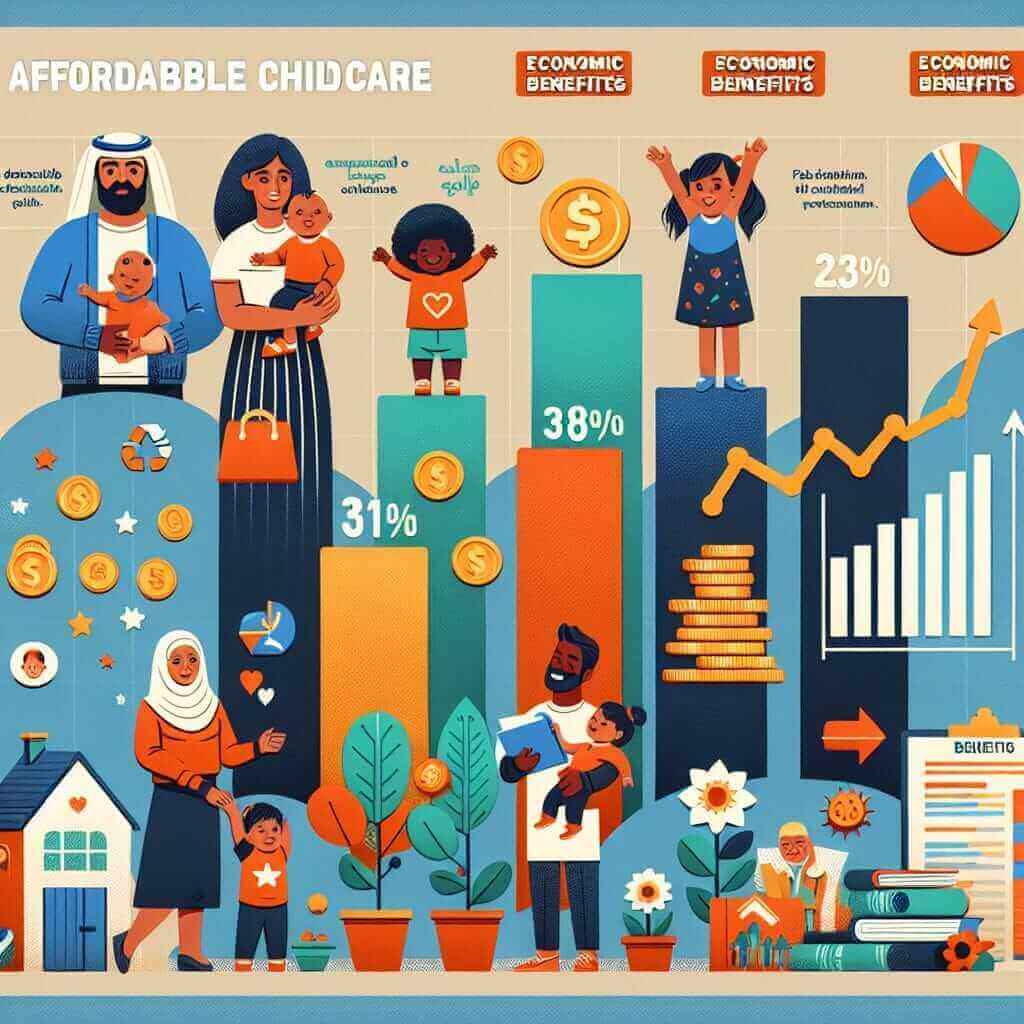Childcare is a topic that frequently appears in IELTS Writing Task 2. Understanding its importance, implications, and the challenges surrounding it can prepare you for a wide range of related essay topics. The need for affordable childcare is a subject of international debate and directly affects modern economies and individual well-being. Below, we will explore this topic, create an example essay prompt, provide a complete sample essay, and discuss key points and vocabulary to help you excel in your writing.
Common IELTS Writing Task 2 Prompts on Childcare
Childcare-related topics have appeared in many exam sessions. These topics often require you to consider various perspectives and present a balanced argument. Here are three example prompts:
- “More and more parents are struggling to afford childcare services while working full time. Discuss the impacts this has on families and society. Provide your solutions to this problem.”
- “Some governments subsidize childcare costs to ensure that all children have access to early education. To what extent do you agree or disagree with this policy?”
- “Affordable childcare is necessary for a healthy work-life balance. Discuss the implications of unaffordable childcare on people’s lives.”
Chosen Prompt for Sample Essay
Let’s choose the second prompt for the sample essay:
“Some governments subsidize childcare costs to ensure that all children have access to early education. To what extent do you agree or disagree with this policy?”
Analyzing the Essay Prompt
To respond effectively, first identify the key points:
- Discuss government subsidies for childcare.
- Explain the importance of access to early education.
- Evaluate the implications of such a policy on society, families, and children.
- State your opinion clearly, providing arguments to support your view.
Sample Essay
Government subsidies for childcare have become an essential topic of discussion in many countries. Advocates argue that these subsidies are crucial for ensuring that children have access to early education, which is vital for their development. In this essay, I will argue that subsidizing childcare costs is an excellent policy for several reasons.
Firstly, affordable childcare allows parents, especially women, to participate in the workforce. When childcare costs are subsidized, parents do not have to choose between their careers and their children. This not only promotes gender equality but also helps in boosting the economy by increasing the labor force. For instance, a study conducted in the UK revealed that affordable childcare contributed to higher employment rates among mothers, significantly benefiting household incomes.
Secondly, access to early education through subsidized childcare has profound impacts on children’s development. Early childhood education lays the foundation for cognitive and social skills. By ensuring that all children, irrespective of their parents’ economic status, have access to quality childcare, societies can reduce disparities in educational outcomes. Research shows that children who attend quality early education programs are more likely to succeed academically and professionally later in life.

Finally, subsidizing childcare can ameliorate social inequalities. Lower-income families often cannot afford high-quality childcare, which perpetuates cycles of poverty and limits children’s future opportunities. By providing subsidies, governments can offer every child a fair start, reducing long-term social and economic inequalities. An OECD report highlighted that countries with robust childcare subsidies tend to have lower rates of child poverty and better educational achievements.
In conclusion, government subsidies for childcare are essential for multiple reasons, encompassing gender equality, children’s development, and the reduction of social inequalities. While implementing such policies may require substantial government investment, the long-term benefits to society far outweigh the initial costs. Therefore, I strongly agree with the idea of subsidizing childcare to ensure that all children have access to early education.
Word count: 311 words
Key Points to Remember When Writing About This Topic
- Use Specific Examples: Provide examples to support your arguments, preferably with data or studies to add credibility.
- Balanced Argument: Consider both sides of the argument if the prompt asks whether you agree or disagree.
- Clear Structure: Introduction, three body paragraphs, and a conclusion.
- Formal Tone: Maintain formal language appropriate for an academic essay.
- Cohesion and Coherence: Use linking words and a clear progression of ideas.
Challenging Vocabulary and Their Meanings
- Subsidize (v) /ˈsʌbsɪdaɪz/: To support financially.
- Cognitive (adj) /ˈkɒɡnɪtɪv/: Related to mental processes such as awareness, perception, reasoning, and judgment.
- Ameliorate (v) /əˈmiːliəreɪt/: To make something better, improve.
- Disparities (n) /dɪˈspærɪtiz/: Inequalities or differences, especially in terms of socioeconomic factors.
- Irrespective (adj) /ɪrɪˈspɛktɪv/: Regardless or without considering.
Conclusion
Understanding the importance of affordable childcare and being able to discuss it coherently can give you an edge in the IELTS Writing Task 2. As you practice, consider exploring the economic, social, and personal implications from various angles. Here are a few additional prompts to consider:
- “What are the economic impacts of high childcare costs on families and businesses?”
- “Should childcare be considered a public service and funded by taxpayers? Discuss the pros and cons.”
- “Compare and contrast the childcare policies of two different countries.”
By preparing for such topics, you can improve both your content knowledge and writing skills, ensuring a strong performance in your IELTS exam.